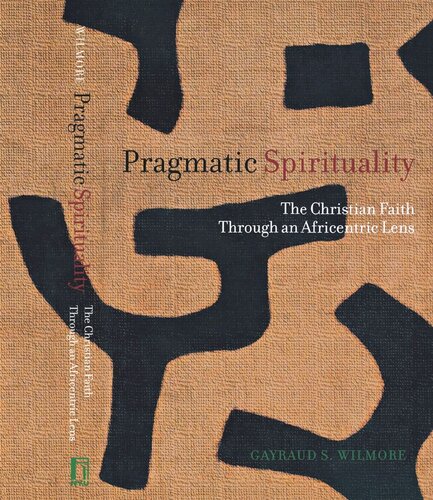

Most ebook files are in PDF format, so you can easily read them using various software such as Foxit Reader or directly on the Google Chrome browser.
Some ebook files are released by publishers in other formats such as .awz, .mobi, .epub, .fb2, etc. You may need to install specific software to read these formats on mobile/PC, such as Calibre.
Please read the tutorial at this link: https://ebookbell.com/faq
We offer FREE conversion to the popular formats you request; however, this may take some time. Therefore, right after payment, please email us, and we will try to provide the service as quickly as possible.
For some exceptional file formats or broken links (if any), please refrain from opening any disputes. Instead, email us first, and we will try to assist within a maximum of 6 hours.
EbookBell Team

4.0
56 reviewsA collection of the writings by one of the most influential African American theologians.
Gayraud S. Wilmore, an internationally renowned scholar of the history of the African American church, is one of the founders of black theology and author of Black Religion and Black Radicalism. Pragmatic Spirituality brings together some of his most compelling writings to speak to continuing issues in African American Christianity and black theology. The volume makes available for the first time several of Wilmore's previously unpublished essays, including a new chapter on womanist theology written for this book. Each chapter has been thoroughly reviewed and where appropriate reworked for this volume in order to create a coherent work which reveals a consistent "pragmatic spirituality" in African and African American religious practice. This book presents a view of the Christian faith and life at variance with the quest for personal sanctity by emphasizing communal empowerment for humanization and justice.
Pragmatic Spirituality incorporates some of the most engaging of Wilmore's voluminous writings to reinstate a persistent theme: that black or Africentric faith transposes itself from basically numinous and ecstatic elements in African and African diasporic religions to the immediate and practical work of healing and empowering the poor and marginalized. This book transcends a narrow Africentrism to call for a broad acquaintance with a historic motif in black faith that has to do with compassion, justice, equality, and the liberation of all people.
This illuminating volume displays Wilmore's influence on the development of black theology for over fifty years, and introduces his work to a new generation of scholars.